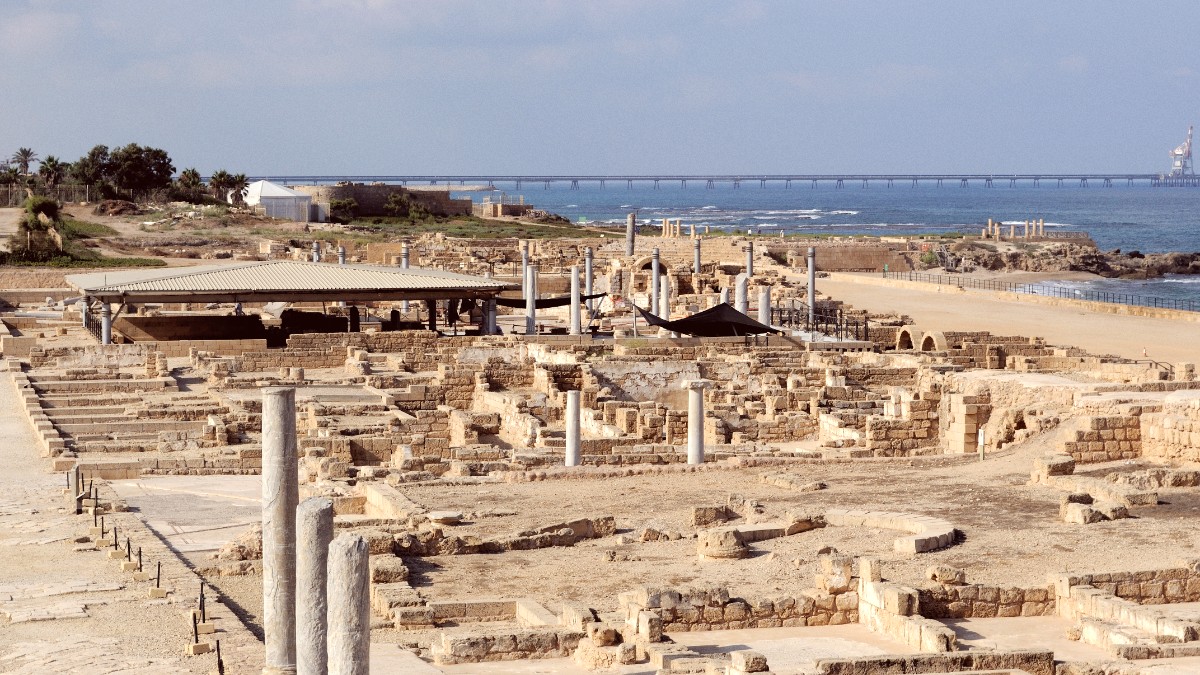
Israel
Immigrants from various parts of the Middle East, North Africa, and Eastern Europe brought their culinary traditions, which then adapted to the local ingredients and climate. This has created an unique and flavorful food culture.
The cuisine emphasizes fresh, seasonal ingredients, an abundance of herbs, and aromatic spices. It frequently features local produce like tomatoes, cucumbers, peppers, and eggplants, along with staples like olive oil, chickpeas, and tahini. The historical layers of Israel, from ancient times to modern immigration, continuously enrich its culinary identity.
Influences from Arab and Druze cuisine are prominent, often featuring dishes with labaneh (strained yogurt cheese), ample use of za'atar, and excellent olive oil.
This area features a modern, innovative culinary scene with strong international influences.
A natural emphasis on fresh seafood, grilled fish, and Mediterranean flavors defines the coastal dining experience. Dishes often feature local olive oil and fresh vegetables.
Deep-fried balls made from ground chickpeas and herbs, typically served hot in pita bread with Israeli salad, hummus, and tahini.
A satisfying and affordable street food meal found across Israel.
Slices of spiced meat (chicken, turkey, or lamb) cooked on a vertical spit, shaved off, and served in pita bread or a larger laffa flatbread.
A popular and widely available street food option.
A creamy dip or spread made from mashed chickpeas, tahini, lemon juice, and garlic. Served warm, usually with fresh pita bread, and often topped with olive oil.
Find excellent hummus at "hummusia" restaurants, which specialize in this dish.
Arak: An anise-flavored alcoholic spirit. Limonana: A refreshing blend of fresh mint and lemon juice. Freshly Squeezed Juices: Orange and pomegranate juices are widely available and delicious.
Halva: A sweet confection made from tahini. Baklava: A sweet pastry with layers of filo pastry. Krembo: A chocolate-covered marshmallow treat, popular in winter.
Within the Caesarea Port area, you will find upscale restaurants offering a refined dining experience. Many of these specialize in fresh seafood and Mediterranean cuisine, often with beautiful sea views.
Casual sit-down restaurants offering a variety of Israeli and international dishes. These are common in the Caesarea port area and in nearby towns like Or Akiva or Hadera.
Options for budget-friendly meals are limited directly within Caesarea National Park. For street food and more affordable local eateries, venture into nearby towns like Or Akiva or Hadera.
Caesarea itself does not feature large traditional markets or dedicated food halls.
For this experience, visit larger cities like Hadera or Haifa.
While Israeli cuisine dominates, some restaurants in Caesarea or nearby towns may feature international influences, like Italian, French, or Asian dishes, reflecting the country's diverse population.
Diversity in flavors is available for those seeking non-local options.
Restaurants focusing entirely on hummus, served as a full meal with various toppings.
Experience traditional Druze hospitality and cuisine in Carmel mountains or Galilee villages.
Sufganiyot (doughnuts) for Hanukkah and Hamantaschen for Purim are festive treats.
Local markets showcase seasonal fruits, vegetables, cheeses, and baked goods.
Awareness of gluten-free options is increasing, especially in major cities. Clearly explain your dietary restrictions to restaurant staff.
Communication of your needs remains important.
Allergen information may not always be explicitly listed on menus, so direct inquiry is advisable.
Direct inquiry about ingredients is always best.
The HappyCow App guides you to vegan and vegetarian restaurants and health food stores.
Clearly explain your dietary restrictions to restaurant staff. This helps secure a safe and satisfying dining experience.
These specialized restaurants focus almost entirely on hummus, serving it as a full meal with various toppings.
In the Carmel mountains or Galilee, visiting Druze villages offers a chance to experience traditional Druze hospitality and cuisine.
Sufganiyot (doughnuts) for Hanukkah and Hamantaschen (triangular cookies) for Purim holiday are traditional seasonal treats.
Various food festivals occur throughout Israel at different times of the year, especially in major cities.
Check local event listings for any food-related events happening during your visit.
Beyond food, music festivals or art events also take place across Israel, enriching the cultural experience.
These provide additional cultural immersion opportunities.
The historical layers of Israel significantly influence its culinary identity, making each meal a cultural journey.
Fresh, seasonal ingredients are central to Israeli cuisine, giving a fresh and flavorful experience throughout the year.
Always communicate your dietary needs clearly to restaurant staff. Menus may not always list all allergens explicitly.